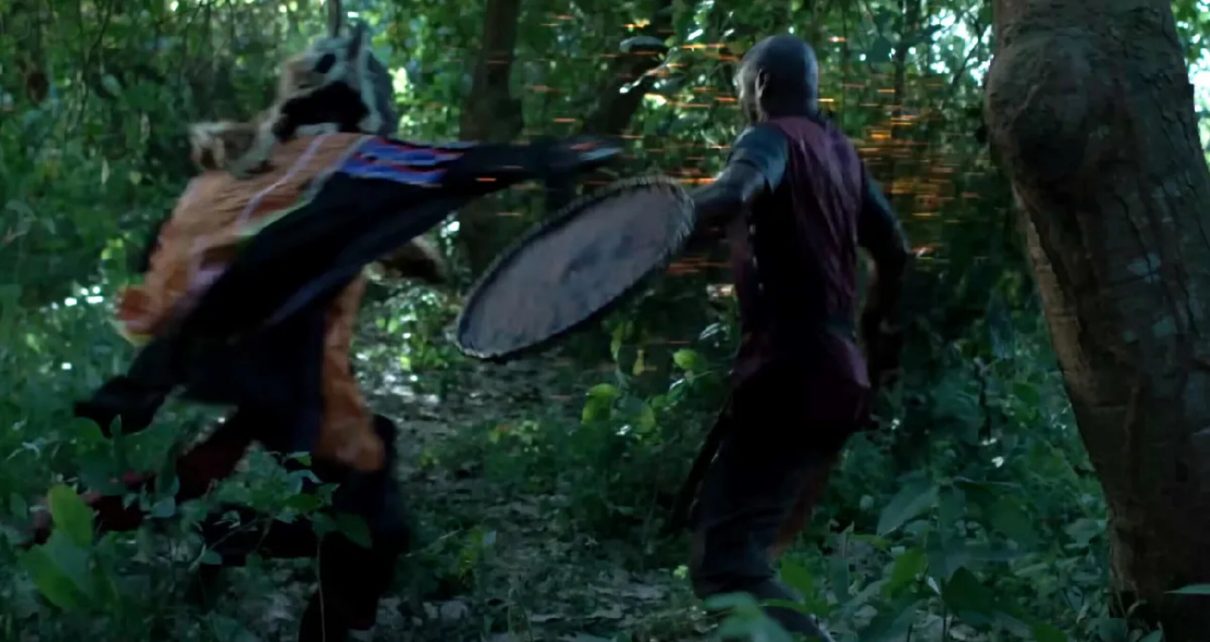Nollywood, one of the world’s most active filmmaking industries, churns out hundreds, sometimes thousands, of films each year from the West African country. These films are produced in both English and non-English languages. “Jagun Jagun,” an indigenous war epic, exemplifies the vibrancy of Yoruba-language cinema—a subset of Nollywood rooted in Nigeria’s Western region. It’s now available on Netflix.
“Jagun Jagun” is a robust blockbuster, showcasing impressive production values, stunning cinematography, and a talented cast. The story revolves around Gbotija (Adedimeji Lateef), a young man who manages to act despite a broken leg. The film commences with Gbotija enrolling in a men’s training school led by warlord Ogundiji (Femi Adebayo), who is not only a Yoruba acting legend but also the film’s producer. The school caters to men aspiring to master combat skills in order to defend their villages.
Gbotija, like many others, does not come from a lineage of warriors. However, driven by a desire for vengeance after witnessing his father’s brutal murder during a vicious attack in his youth, he is determined to seek retribution. But the plot thickens as he falls in love with Kitan (Bukunmi Oluwashina), a woman he aims to marry, and begins to question Ogundiji’s motives. In turn, Ogundiji starts to perceive Gbotija as a potential threat, adding layers of complexity to the storyline.
“Jagun Jagun” takes the audience on an emotional rollercoaster, navigating through suffering and solace, bloodshed and heartbreak. The film unflinchingly confronts the grim aftermath of conflict and power struggles, highlighting the devastating impact on characters. In its opening moments, a prince is tragically shot dead in front of his family.
Throughout the film, the term “Jagun Jagun” echoes—a Yoruba term meaning “warrior.” Often shouted by Ogundiji, it is met with the response, “We fight with charms and our sweat,” from those undergoing training. The concept of “charms” introduces a mystical dimension, where certain warriors become bulletproof through enchantment. Meanwhile, the protagonist, Gbotija, possesses a unique bond with trees, able to command them. This mystical element, distinct from Western narratives, anchors the captivating storytelling in Yoruba culture.
“Jagun Jagun” offers a compelling and poignant viewing experience. While unfamiliar viewers might encounter moments of confusion, this is acceptable; it’s perfectly fine to engage with films not tailored to one’s background. The film employs cultural idioms, imparts wisdom, showcases choices made, and explores their interpretations by various characters, resulting in a fulfilling and distinctive encounter. It provides an opportunity to engage with media originating from a foreign country, culture, or community, and critically engages with the film’s scathing critique of the remnants of imperialism. Beyond being a captivating period war epic, “Jagun Jagun” holds intrinsic value as an action-infused response to the long-standing history of white imperialism, which has often obscured cultures like the Yoruba. The movie’s unapologetic brutality unfolds over 2 hours and 14 minutes, making it unsuitable for the faint-hearted. However, for enthusiasts of the war epic genre seeking insight into its portrayal within an alternate cultural context, “Jagun Jagun” stands as a worthy contender for exploration.


